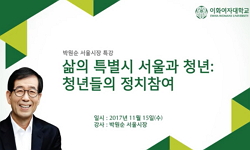This study was conducted based on a survey of unmarried men and women who lives in Jeju on marriage and childbirth intention to deal with the cause of low birth among the causes of the population cliff problem in Korea. It is worth noting that the dec...
http://chineseinput.net/에서 pinyin(병음)방식으로 중국어를 변환할 수 있습니다.
변환된 중국어를 복사하여 사용하시면 됩니다.
- 中文 을 입력하시려면 zhongwen을 입력하시고 space를누르시면됩니다.
- 北京 을 입력하시려면 beijing을 입력하시고 space를 누르시면 됩니다.
https://www.riss.kr/link?id=A109481160
- 저자
- 발행기관
- 학술지명
- 권호사항
-
발행연도
2022
-
작성언어
Korean
-
주제어
인구절벽 ; 미혼남녀 ; 결혼의향 ; 출산의향 ; 저출산 ; marriage intentions ; intention of childbirth ; low fertility
-
KDC
337
-
자료형태
학술저널
-
수록면
93-111(19쪽)
- 제공처
-
0
상세조회 -
0
다운로드
부가정보
다국어 초록 (Multilingual Abstract)
This study was conducted based on a survey of unmarried men and women who lives in Jeju on marriage and childbirth intention to deal with the cause of low birth among the causes of the population cliff problem in Korea. It is worth noting that the decline in the fertility rate has been dealt with from various perspectives such as marriage awareness, lifestyle, and social advancement, and in particular, it has led to differences in marriage and childbirth intentions of men and women depending on the cultural background of our society. This study analyzed the differences between men and women based on data that surveyed the values of life, marriage, and childbirth intention for unmarried men and women in Jeju. As a result, it was confirmed that women were more concerned about self-realization and deterioration of personal quality of life after marriage and childbirth than men, and that work-life balance and cultural leisure life would also decrease. In previous studies, we tried to clarify the limitations of responding to the cause of low birth rate as socioeconomic reasons. These results suggest the need to examine the social phenomenon in which ultra-low birth rates continue from a new perspective despite the active birth support policies of the government and local governments, and emphasize the need for basic research and policy preparation based on the values of unmarried women.
동일학술지(권/호) 다른 논문
-
코로나19가 미취학 자녀 양육 근로 여성의 정신건강에 미치는 영향
- 제주여성가족연구원
- 윤나영(Yoon, Na-Young)
- 2022
-
제주지역 여성장애인의 온라인 직업교육 참여의사에 영향을 미치는 요인
- 제주여성가족연구원
- 이연화(Lee, Yeon-Hwa)
- 2022
-
제주지역 여성 1인가구 만족도에 영향을 미치는 요인 분석 - 연령대별 비교를 중심으로
- 제주여성가족연구원
- 서세진(SEO, SEJIN)
- 2022
-
제주지역 뷰티서비스산업 인력 양성 및 발전을 위한 제언 – 직업계 고등학교와 연계를 중심으로
- 제주여성가족연구원
- 김다솔(Kim, Dasol)
- 2022




 DBpia
DBpia




